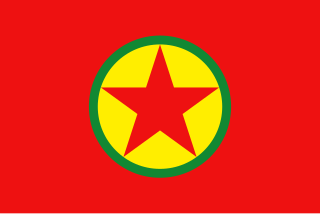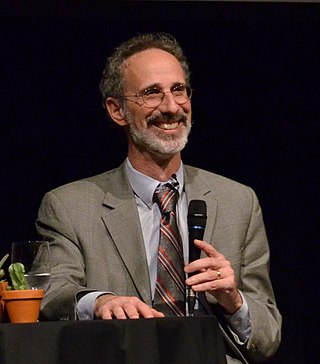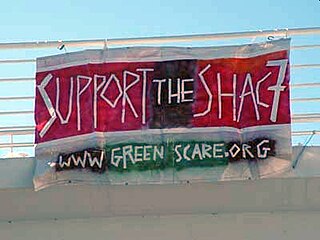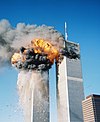Related Research Articles

The Kurdistan Workers' Party or PKK is a Kurdish militant political organization and armed guerrilla movement which historically operated throughout Kurdistan but is now primarily based in the mountainous Kurdish-majority regions of southeastern Turkey and northern Iraq. Since 1984, the PKK has utilized asymmetric warfare in the Kurdish–Turkish conflict. Although the PKK initially sought an independent Kurdish state, in the 1990s its goals changed to seeking autonomy and increased political and cultural rights for Kurds within Turkey.

Abdullah Öcalan, also known as Apo, is a political prisoner and founding member of the militant Kurdistan Workers' Party (PKK).

National security, or national defence, is the security and defence of a sovereign state, including its citizens, economy, and institutions, which is regarded as a duty of government. Originally conceived as protection against military attack, national security is widely understood to include also non-military dimensions, such as the security from terrorism, minimization of crime, economic security, energy security, environmental security, food security, and cyber-security. Similarly, national security risks include, in addition to the actions of other nation states, action by violent non-state actors, by narcotic cartels, organized crime, by multinational corporations, and also the effects of natural disasters.
Eco-terrorism is an act of violence which is committed in support of environmental causes, against people or property.
There is no universal agreement on the legal definition of terrorism, although there exists a consensus academic definition created by scholars.
Cyberterrorism is the use of the Internet to conduct violent acts that result in, or threaten, the loss of life or significant bodily harm, in order to achieve political or ideological gains through threat or intimidation. Acts of deliberate, large-scale disruption of computer networks, especially of personal computers attached to the Internet by means of tools such as computer viruses, computer worms, phishing, malicious software, hardware methods, programming scripts can all be forms of internet terrorism. Cyberterrorism is a controversial term. Some authors opt for a very narrow definition, relating to deployment by known terrorist organizations of disruption attacks against information systems for the primary purpose of creating alarm, panic, or physical disruption. Other authors prefer a broader definition, which includes cybercrime. Participating in a cyberattack affects the terror threat perception, even if it isn't done with a violent approach. By some definitions, it might be difficult to distinguish which instances of online activities are cyberterrorism or cybercrime.

Peter H. Gleick is an American scientist working on issues related to the environment. He works at the Pacific Institute in Oakland, California, which he co-founded in 1987. In 2003 he was awarded a MacArthur Fellowship for his work on water resources. Among the issues he has addressed are conflicts over water resources, water and climate change, development, and human health.
Leaderless resistance, or phantom cell structure, is a social resistance strategy in which small, independent groups, or individuals, challenge an established institution such as a law, economic system, social order, or government. Leaderless resistance can encompass anything from non-violent protest and civil disobedience to vandalism, terrorism, and other violent activity.
Environmental security examines threats posed by environmental events and trends to individuals, communities or nations. It may focus on the impact of human conflict and international relations on the environment, or on how environmental problems cross state borders.

The Pacific Institute for Studies in Development, Environment, and Security is an American non-profit research institute created in 1987 to provide independent research and policy analysis on issues of development, environment, and security, with a particular focus on global and regional freshwater issues. It is located in Oakland, California.
Ecofascism is a term used to describe individuals and groups which combine environmentalism with fascism.

The Green Scare is legal action by the US government against the radical environmental movement, that occurred mostly in the 2000s. It alludes to the Red Scares, periods of fear over communist infiltration of US society.

War can heavily damage the environment, and warring countries often place operational requirements ahead of environmental concerns for the duration of the war. Some international law is designed to limit this environmental harm.

Ecocide describes the mass destruction of nature by humans. Ecocide threatens all human populations who are dependent on natural resources for maintaining ecosystems and ensuring their ability to support future generations. The Independent Expert Panel for the Legal Definition of Ecocide describes it as "unlawful or wanton acts committed with knowledge that there is a substantial likelihood of severe and either widespread or long-term damage to the environment being caused by those acts".
The Dahiya doctrine, or Dahya doctrine, is a military strategy of asymmetric warfare, outlined by former Israel Defense Forces (IDF) Chief of General Staff Gadi Eizenkot, which encompasses the destruction of the civilian infrastructure of regimes deemed to be hostile as a measure calculated to pressure combatants, and endorses the employment of "disproportionate force" to secure that end.
Environmental peacebuilding examines and advocates environmental protection and cooperation as a factor in creating more peaceful relations. Peacebuilding is both the theory and practice of identifying the conditions that can lead to a sustainable peace between past, current or potential future adversaries. At the most basic level, warfare devastates ecosystems and the livelihoods of those who depend on natural resources, and the anarchy of conflict situations leads to the uncontrolled, destructive exploitation of natural resources. Preventing these impacts allows for an easier movement to a sustainable peace. From a more positive perspective, environmental cooperation can be one of the places where hostile parties can sustain a dialogue, and sustainable development is a prerequisite for a sustainable peace.

The October 2011 Çukurca attacks are the PKK's attacks targeting Turkish Armed Forces units in Hakkâri's Çukurca district on October 19, 2011. After midnight, 200 PKK members opened fire on police and gendarmerie buildings and security points in the district center with heavy weapons, resulting in 24 Turkish soldiers killed and 18 wounded. Between 21 and 23 PKK militants were killed in the conflict, and around 250-270 PKK militants were killed in the post-conflict operations, and 210 were injured.
The United Nations General Assembly Resolution 66/225 of 22 December 2011 was a resolution in which the United Nations General Assembly reaffirmed the right of the Palestinian people and of the population of the occupied Golan Heights over their natural resources, demanded Israel to cease the exploitation, damage, cause of loss or depletion, and endangerment of that natural resources and recognized the right of the Palestinian people to claim restitution as a result of Israeli violation of their rights.
Terrorism in Turkey is a significant issue for Turkish authorities as 1.6 million people were investigated after being accused of terrorism between 2016 and 2020. Prominent figures of the Turkish opposition were accused of an alleged membership of a terrorist group. The definition of terrorism in Turkey is rather vague as it also includes a social media post or taking part in popular protests. Terrorist attacks in Turkey have occurred in the southeastern and eastern provinces, and major cities like Ankara and Istanbul. The group Dev-Genç was founded in 1969 and involved in a string of kidnappings, bombings and bank robberies until martial law was declared in 1971. While these incidents were halted by 1973, attacks by the Armenian groups Armenian Secret Army for the Liberation of Armenia (ASALA) and Justice Commandos of the Armenian Genocide (JCAG) continued. Most of these attacks took place internationally, though there were some attacks within Turkey as well. For example, the May 1977 bombing of the Istanbul airport and the Ankara Esenboğa Airport attack. In Turkey protesting for Kurdish rights or supporting or demanding education in the Kurdish language is often also seen as supporting terrorism of the Kurdistan Workers' Party (PKK).
Environmentalism of the poor is a set of social movements that arise from environmental conflicts when impoverished people struggle against powerful state or private interests that threaten their livelihood, health, sovereignty, and culture. Part of the global environmental justice movement, it differs from mainstream environmentalism by emphasizing social justice issues instead of emphasizing conservation and eco-efficiency. It is becoming an increasingly important force for global sustainability.
References
- ↑ Alpas, Hami (2011). Environmental Security and Ecoterrorism . Springer. p. 16. ISBN 9789400712379.
- ↑ "Health groups call for global fossil fuel non-proliferation treaty". the Guardian. 14 September 2022. Retrieved 8 October 2022.
- ↑ Chalecki, Elizabeth (September 2001). "A New Vigilance: Identifying and Reducing the Risks of Environmental Terrorism" (PDF). Pacific Institute. Archived from the original (PDF) on 2007-07-13.
- ↑ Butts, K.H.; Turner, C. W.; Jasparr, C. (September 2003). "Environmental Security Cooperation" (PDF). Center for Strategic Leadership, U.S. Army War College, Carlisle, Pennsylvania. Archived from the original (PDF) on 2007-06-26.
- ↑ San Francisco Chronicle, July 1, 2001, page A10
- ↑ Doug Weir, "Israeli protected areas seem doomed to be the latest environmental victim of the ongoing conflict", Conflict and Environment Observatory, July 11, 2018
- ↑ Yilmaz, Dr Kamil (15 December 2020). "Claiming and Glorifying Environmental Terrorism Online: The Case of PKK's 'Children of Fire Initiative'". GNET. Retrieved 2021-08-02.
- ↑ "זיהום אוויר בשפלה בשל שריפת פסולת באתרים פירטיים בשטחי הרשות | כלכליסט". calcalist (in Hebrew). 2023-11-08. Retrieved 2023-11-21.
- ↑ "Palestinian waste fires are 'killing us slowly,' warn West Bank Israelis". The Jerusalem Post | JPost.com. 2023-02-21. Retrieved 2023-11-21.
